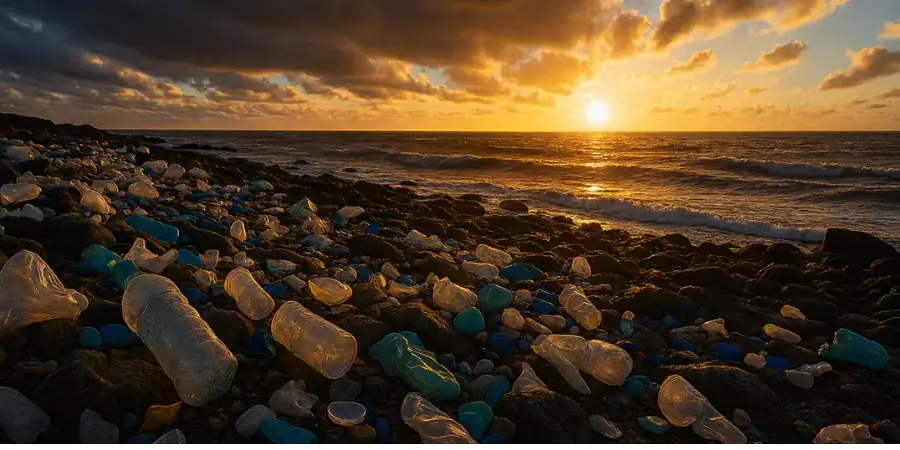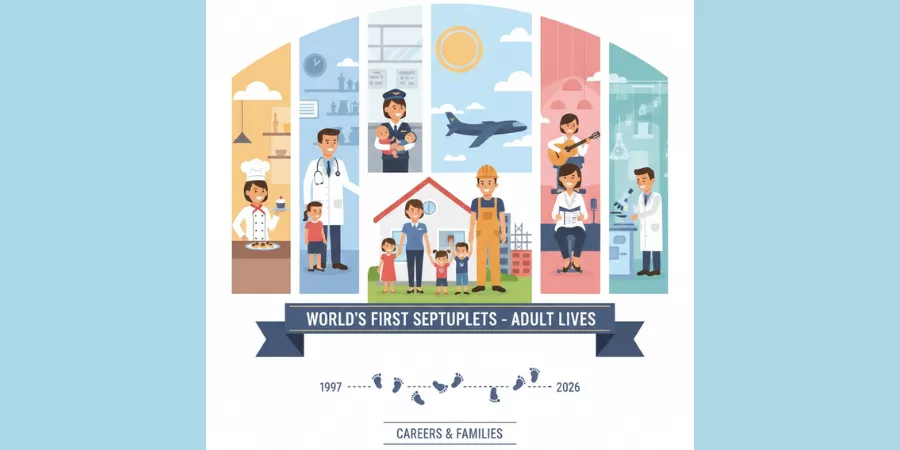A Crisis Fueled by Fossil Fuel Decline and Industrial Redirection
The world is facing an escalating plastic pollution crisis that’s costing governments and taxpayers a staggering $1.5 trillion annually, according to a new report released by The Lancet. This growing health and environmental burden is tied to increasing plastic production, widespread pollution, and mounting health risks across all age groups.
Plastic manufacturing is projected to triple by 2060, driven largely by petrochemical producers pivoting toward plastics as global reliance on fossil fuels declines. Despite decades of public concern and scientific warnings, less than 10% of plastic waste is currently recycled, while an estimated 8,000 megatons of plastic persist in our environment.
The Full Lifecycle of Harm: From Production to Pollution
According to the report, plastics are harmful at every stage of their lifecycle—starting with the extraction of fossil fuels, followed by production, consumer use, and ultimately disposal. These activities contribute significantly to air and water pollution, climate change, and biodiversity loss.
“Plastics are a grave, growing, and under-recognized danger to human and planetary health,” the report states. “They cause disease and death from infancy to old age.”
Communities with low income and limited access to healthcare often bear the brunt of this crisis, highlighting a stark environmental justice issue that transcends borders and economies.
Microplastics Now Found Inside the Human Body
While plastic contamination in oceans and rivers has long been a global concern, recent studies now show that microplastics are present within the human body, including in breast milk and even brain tissue. These findings have sparked serious concerns about long-term exposure and health consequences.
To address the growing urgency, The Lancet has introduced a new global initiative—The Lancet Countdown on Health and Plastics—which will monitor government actions and policy developments aimed at combating plastic-related health risks.
Global Treaty Talks Underway in Geneva
The release of this report coincides with a pivotal moment: the final round of negotiations in Geneva, where 175 nations have gathered to develop the world’s first Global Plastics Treaty. Running through August 14, the talks aim to set legally binding targets for reducing plastic production.
However, progress has been slow. A bloc of countries—including China, Russia, Iran, and Saudi Arabia—continues to resist strict production limits, instead advocating for expanded recycling as the primary solution. Critics argue that recycling alone will not solve the crisis.
Petrochemical Pivot: From Fuel to Plastic
The shift in industry focus from fossil fuel energy to plastics is now considered a key driver behind surging plastic production. As demand for traditional energy sources wanes, major petrochemical corporations are ramping up investments in plastic manufacturing—further entrenching the problem.
Plastics contain a vast array of chemical compounds—up to 16,000 in some cases. These chemicals enter the body through ingestion, inhalation, and skin contact, often from everyday items such as food packaging, containers, and household goods.
Health Consequences: From the Womb to Old Age
The report emphasizes that vulnerable populations, especially unborn babies, infants, and children, face severe risks. Exposure has been linked to conditions such as miscarriage, birth defects, developmental delays, and metabolic disorders like diabetes.
For adults, the health implications include cardiovascular disease, strokes, and various forms of cancer. The study also highlights that the full scope of damage caused by plastic-related chemicals is likely underestimated, due to limited data on long-term exposure and interactions between compounds.
The Bottom Line: Recycling Is Not Enough
“The world cannot recycle its way out of this plastic pollution crisis,” The Lancet warns bluntly. Tackling the issue will require more than improved waste management. The publication calls for science-backed intervention including:
- Stronger regulatory frameworks
- International policy enforcement
- Financial incentives for innovation
- Ongoing public health research
Only through coordinated global action, rooted in data and equity, can the world address the mounting economic and health toll of plastic pollution.















